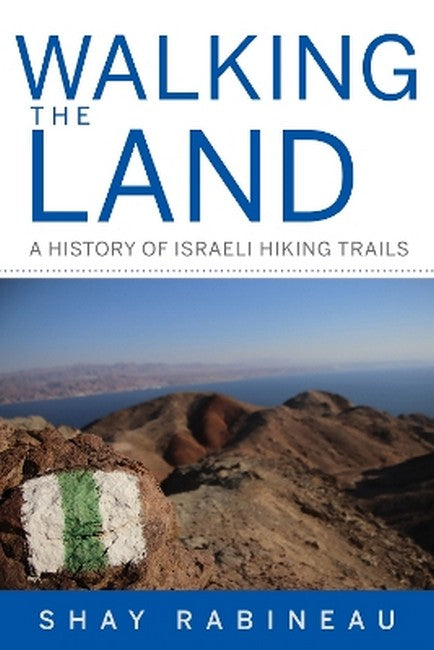Shay Rabineau is Assistant Professor of Israel Studies and Associate Director of the Center for Israel Studies at Binghamton University. His research is at the intersection of Middle East history, geography, politics, and environment.
Request Academic Copy
Please copy the ISBN for submitting review copy form
Description
Acknowledgments Note on Transliteration, Translation, and Language Use Introduction: Israeli Hiking Trails and Their Spatial, National, and Existential Dimensions 1. The Construction of a Jewish Hiking Culture in Palestine, 1904-1935 2. The Palmach and the First Marked Hiking Trail, 1935-1948 3. The First Israeli Hiking Trails, 1949-1963 4. The Foundations of the Country-Wide Trail Network, 1963-1979 5. Completing the Network and Creating a National Trail, 1980-2001 6. Postscripts, 2001-2021 Notes Bibliography Index
"Shay Rabineau's Walking the Land offers a fascinating history of a largely unstudied topic - the creation of a network of trails in Palestine and Israel since the early 20th century and the development of a thriving recreational culture among natives and visitors. Who would have suspected that trails themselves reveal a slice of a country's history? The author's choice of illuminating maps and evocative photographs will draw the reader right onto the trails."-Jehuda Reinharz, Richard Koret Professor of Modern Jewish History, Brandeis University "In his deeply original Walking the Land, Shay Rabineau takes what seems like a surface-level issue - hiking trails - and explores their profound implications in and on Zionist thought, Israeli society, and Palestinian national aspirations. He does so with the seriousness of a scholar and the sparkle of a great storyteller who has enjoyed an adventure or two himself on these winding paths."-Christa Case Bryant, former Jerusalem bureau chief for The Christian Science Monitor "Rabineau's book, in short, offers an authoritative introduction to the history of hiking and trail-marking in the Land of Israel, and it is certain to become a 'go to' work on these phenomena for the foreseeable future."-David Rodman, Israel Affairs "Shay Rabineau forges new connections between Middle East geography, history, politics, and the environment as he chronologically traces the development of a vast network of trails in Israel and the role they play in the construction of national identity. The book itself is highly readable, with research that comes to life through his ability to craft compelling narratives."-Kyle Boggs, Boise State University, H-NET Reviews Humanities & Social Sciences "I believe no other book - at least in English - better describes the historical and cultural origin of [these] maps than Rabineau's Walking the Land, even though the maps are not mentioned by name, but the book discusses the contextual background of their production period. . . . Timely, the book discusses the construct of the key histories, aesthetics, politics and ideologies (past and present), which resulted, indirectly or directly, in having an extended network of marked trails (Hebrew: Simun Shvilim) and 20 maps of scale 1:50,000."-Ahmed Shams, Durham University, International Journal of Heritage Studies "This first comprehensive study of the role of culture, society, and politics in the making and hiking of trails will appeal to scholars of history, sociology, cultural studies, geography, tourism, heritage, politcal studies, and other subject areas. I also enthusiastically recommend it to all lovers of hiking and walking-the world's most popular leisure activity."-Noga Collins-Kreiner - Unversity of Haifa, Israel Studies Review "Based on a variety of sources and an interdisciplinary approach, meticulously contextualized and researched and lucidly written, this book masterfully uncovers the complex ways in which the shaping of Israel's marked hiking trails system relates to the country's history, culture, sociology and politics. Rabineau's work exposes how even a seemingly innocuous endeavor such as marking hiking trails is premised on questions of national identity and a relationship to the environment."-Israel Studies Review

